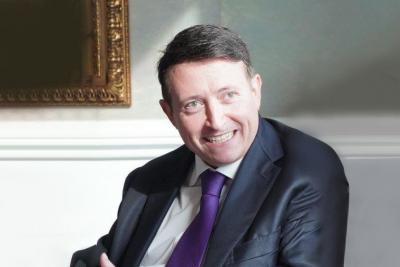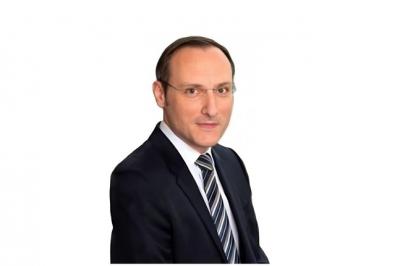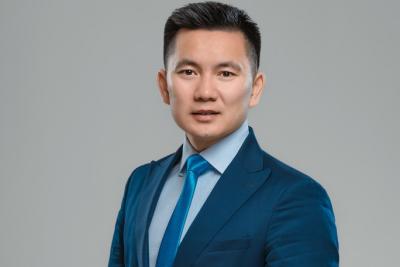Impact Investing and Micro Finance – Gaining Investment Exposure to High-Yield, Differentiated and ‘Real Economy’ Opportunities

Vincenzo Trani of Mikro Kapital
Nov 17, 2022
Hubbis is delighted to have held a behind-closed-doors event alongside co-host Mikro Kapital on October 18, focusing on differentiated investment opportunities in fixed-coupon high-yield bonds. The guests were all decision-makers from the wealth management industry in Asia, and the event featured as speakers Vincenzo Trani, President and Founder of Mikro Kapital, Michele Mattioda, Executive Director and a Member of the Board, and Danny Howell, CEO for Asia who operates out of the firm’s newly opened Hong Kong office.
Topics covered included:
- How do European Family Office, Multi-Family Office and UHNW investors view ESG and Impact investing?
- How does micro finance help support UN Sustainable Development Goals and ESG investment?
- Can micro finance be a viable investment opportunity for private clients?
- What is Mikro Kapital and why was it created?
- Where are the micro finance opportunities for Mikro Kapital?
- What formula does Mikro Kapital apply and why?
- How can loans be disbursed across EM and frontier economies and how do you make sure that defaults stay low?
- What types of high-yield bonds does Mikro Kapital offer investors?
A Brief Overview of Mikro Kapital and Founder Vincenzo Trani
Launched in 2008, Mikro Kapital is a group focused on the use of microfinance techniques for investing in small businesses across emerging markets , with a focus on the ‘Silk Road’ countries of Central Asia and Europe, and with a view to grow into other regions over time.
Mikro Kapital operates through two securitization funds: MIKRO FUND and ALTERNATIVE.
Mikro Kapital believes microcredit has a direct and positive influence on supporting the growth of emerging economies, stimulating the growth of small and medium entrepreneurships by providing ‘inclusive finance’ access. Mikro Kapital is a highly effective ‘Impact Investment’ fund, built around delivering against our ESG principles and UN Sustainable Development Goals. At the same time, it provides a remarkably interesting opportunity for investors to diversify their portfolio by investing in and providing exposure to our investors to the ‘real economy’ of developing markets through the ‘Silk Road’ countries. We lend to entrepreneurs predominantly operating in rural areas in the agribusiness and services sectors, and the long-term performance of the Mikro Kapital Group is a testament to the deep knowledge and experience of the Founder, and a highly diversified lending book by country and sector.
The principles on which the Group is designed and under which it operates are focused on providing inclusive finance across the countries in which it operates to improve living standards and close their gap with the developed world. Mikro Kapital’s objective is to position ourselves close to SMEs that are creditworthy, with high growth potential and considerable social impact since they form the basis of the socio-economic development chain within their communities.
Vincenzo Trani, Mikro Kapital’s Founder, worked for many years in emerging markets across Eastern Europe & Central Asia for the European Bank for Reconstruction and Development (EBRD), before founding Mikro Kapital Group in 2008. He is passionate about what he does, and has deep experience in microfinance lending into the countries in which we provide loans to entrepreneurs, and he has contributed to the development of market-leading micro-finance lending processes and practices, bringing all of this expertise to Mikro Kapital.
The firm has a fully owned/integrated end-to-end lending process with its own credit officers on the ground in each country in which they operate, supporting many women entrepreneurs (which comprises 41%+ of the lending book) in predominantly Agribusiness and Service businesses (roughly 70% of their lending) in rural communities across Silk Road countries.
The Mikro Kapital Group, headquartered in Luxembourg, has many long-term Family Office, Multi-Family Office and other mid-tier institutional investor relationships in Switzerland, France, Germany, Spain, the UK, Italy, and many other countries across Europe, who together comprise more than EUR1.3 billion aggregate total assets invested to date.
And a Short Note on Danny Howell, CEO of Mikro Kapital’s New Hong Kong Office for Asia
On October 17, Mikro Kapital announced the official opening of a new Hong Kong office and the appointment of its Chief Executive Officer for Asia, Danny Howell. Building on Mikro Kapital’s successful track record, an established ecosystem of 235 offices and an established European investor base from countries including Switzerland, Germany, Spain, France and Italy, Howell is now working closely with founder and chairman, Vincenzo Trani, to create opportunities for Asian based family and multi-family offices where demand for social impact investing closely follows the global trend.
Originally from Australia, Howell is a financial services and wealth & asset management veteran with 25 years in Asia Pacific and extensive experience in establishing and growing businesses for asset managers, investment advisory businesses, family offices and wealth managers.
Vincenzo said at the time: “We are launching our strategy from Hong Kong and across Singapore and the rest of Asia through Mikro Kapital (HK) Ltd., and working with Danny, whose deep understanding of the region represents a huge advantage for Mikro Kapital’s expansion plans. As investors seek refuge from the turbulence in the global financial markets, our investment strategy, focusing on the small but economically important businesses in the core industrial, agricultural, and service sectors along the Silk Road, gives market exposure to Asian investors who want to participate in the ‘real economies’ of developing markets through ‘Impact Investing’ micro finance solutions, with a high-yield return and a close to zero equity market return correlation .”
Danny said at the time: “This is a unique opportunity to be part of a social investment movement that puts society and local economies at the heart of its business. The success of Mikro Kapital over the last 14 years for European investors brings a proven track record to Asian investors and enables them to have a direct influence on stimulating the growth of small companies that are the backbone of communities and economies across this remarkably diverse region.”
A summary of the key observations and insights from Mikro Kapital
Bringing the Mikro Kapital proposition to Asia
Danny Howell explained that the firm brings a proven long-term track record and a highly attractive and distinctive value proposition to Asian investors. “We believe our proposition will find much interest amongst investors. It is a fixed coupon, high-yield bond investment. It offers impact investment exposure and ESG-centricity, as we are financing entrepreneurs in developing markets. The investments are uncorrelated to the market. The maturity of the bonds varies depending on the client’s investment criteria and appetite. The bonds represent securitised assets. There is an equity first loss position that we hold that creates a significant risk buffer for investors. The underlying assets are in the real economy, and in the Silk Road countries.
A key difference between our model and those providing micro finance already in this region is that we control the entire process from the bond packaging and funding and then delivering that finance to the ‘entrepreneur borrowers’. Others in this region provide funds to local institutions that deliver the finance to the obligors. Our business lending model helps deliver greater efficiencies and higher returns for our investors, through a well-managed, transparent end-to-end process through which we can lend responsibly to our borrowers, who currently number is nearly 300,000 across a highly diversified lending book (by country, economic sector).
Our book thus far totals EUR1.35 billion across 14 countries since 2008, so we have vast experience. Some 41% of our borrowers are women who are entrepreneurs in local, rural communities, mainly in service businesses and agricultural businesses. And in some countries, that figure is even higher.
From both an investment perspective, and for the impact investment value Mikro Kapital creates, we believe there will be much interest amongst investors across Asia, including Family Offices, Multi Family Offices, Wealth Managers, Private Banks, and Institutional investors.
The Mikro Kapital Group have also developed complementary and an innovative proposition to further support entrepreneurs in developing markets, through a ‘car-sharing’ offering. This allows those entrepreneurs with limited cash-flow and collateral to also benefit from the support Mikro Kapital can provide, by gaining fractional access on a time basis to vehicles they can use to establish and grow their businesses. Essentially it is an operative leasing for end users, who can optimize the cost of a vehicle by paying only for the effective use.
It has become a highly successful part of the Mikro Kapital Group, under which the Group now owns a fleet of some 22,000 vehicles, available across the Silk Road countries, and they’re being utilised by some eight million customers It’s a testament to the ongoing innovation occurring within the Mikro Kapital Group, providing further support to our developing market entrepreneurs in line with our impact investing principles”
The evolution of impact and ESG
Vincenzo explained how ESG characteristics have become far more mainstream over the nearly 15 years since he founded Mikro Kapital, and that microfinance is very much central to the broadest qualities ESG.
He explained the key for the firm is that they practice microfinance as taught him by the EBDR, namely that microfinance represents loans to microentrepreneurs, who then invest in the real economy. And that, very simply, means the money is highly likely to be paid back. Through prudent lending standards, supported by detailed assessment and analysis of cash-flow and collateral for each loan provided, and then very close ongoing management of each loan case, our Group has achieved a very low non-performing loan rate (less than 1%) over the history of the Group, as well as maintained highly responsible lending standards to our borrowers entirely consistent with our commitment to impact investment and UN SDG principles.
Very short-term and almost entirely fixed rate loans
In further explaining what we believe is quite distinctive about our business model in the microfinance sector, Vincenzo added that “In our model our Credit Officers, who are never located more than 100km from the communities they lend into, visit each loan applicant on-site and very closely assess the cash flow of the entrepreneur, as well as the collateral offered. Our model works very efficiently, and to the benefit of both for the borrower and Mikro as the lender” Vincenzo reported.
He explained these are non-bankable loans and assessed on financial capacity of the borrowers. The loans are not exposed greatly to rising interest rates, as they are generally very short term, with the full portfolio rolled over ever six to 12 months. “Floating rates are very seldom used in these short-term loans in microfinance,” he told invitees.
He added that they prefer to work in countries that have a strong regulatory perspective on microfinance, for example with interest rate caps. “India, from this point of view, is very active in reducing the social risks in the microfinance industry. They want to help small entrepreneurs, small businesses, and help develop the real economy. They are doing an excellent job. So, we always start to work with countries that have already a policy format for finance.”
Microfinance activity has to be sustainable for the end borrowers and for the Micro Finance Institutions as well, that are providing a unique opportunity of financial inclusion in areas normally untapped by traditional banking system.
Reaching the borrowers across emerging and frontier economies
Vincenzo explained that this business does not lend itself to digital distribution and connectivity but can be supported by technology.
“We work through 235 offices in 14 countries, and we have 3,600 employees in Mikro Kapital Group (including direct employees from credit, leasing and carsharing business) who find the customers and conduct the full cash flow analysis and due diligence at their place of work,” he reported. “They then disburse the loans and follow up with regular monitoring, checking, and rechecking. They also help train the borrowers, so that their investments, for example in a vehicle, yield results for their business. This is a very people-focused business, but online and offline connectivity can work increasingly well alongside each other.”
Typical deals and typical loan sizes
Vincenzo explained that the average loan size today is EUR27,000 or less. And in many of the markets the loans are far smaller - in Tajikstan in Central Asia, an important market for the firm, some 72% of loans are to women entrepreneurs and the average loan is about USD3,000.
“The most important element is for transparency and trust in the relationship between the entrepreneur and Mikro Kapital. It’s something we emphasise continuously,” he said. “This is a key element of social responsibility as we build the relationships and help train these borrowers as entrepreneurs. We passionately believe that this is a very exciting business because you see the entrepreneurs that are really growing. Moreover, we like to involve the investors in our business in an incredibly unique way; instead of just showing presentations, we invite them to see what we do and to meet clients.
Assessing the borrowers and their collateral
Vincenzo explained that this is a people-intensive business because each borrower, their business and their collateral must be accurately assessed, and the loans must be disbursed, and the repayments later collected.
“We provide loans on the basis of a discount of between 30% and 50% on the collateral and we are very careful that the market value is much more than the collateral value,” he told guests. “If a client cannot pay, we can then offer to cancel the interest rates, to cancel any penalties fully if he or she is able to sell the collateral within 30 days, with which proceeds they can repay the capital without interest. Any surplus on the sale they keep themselves to restart.”
He explained that even during the worst of COVID, their delinquent payments were running at no more than 7%, and total defaults less than 1%. “We achieved all that precisely by our sensible approach of allowing the borrowers to sell collateral if they could not repay, and then repay us the capital and keep the surplus. In this way, things move fast and efficiently.”
Overcoming the issues around corruption
Vincenzo said that they operate in some countries where corruption can exist. “For that reason, enforcement through any type of legal process is less favoured, and the collateral-realization process described above, with interest rate payment and penalties forgiven, offers the most attractive route through which loans performing less well can be managed – in a fair and transparent way for both Mikro and the borrower. The borrower can use the surplus from collateral realisation to re-start.”
The mission in Asia
The Group is excited about the opportunity to bring our distinctive investment proposition to Asia. It’s one that has found strong support over a sustained period from the Group’s European investors – with more than 30% of investment sourced from Switzerland, and predominantly from Family Offices and other mid-tier institutional investors there. These are long-term, loyal clients, for whom the average Bond investment is around Euro600k. From Hong Kong, as the regional hub for the Group, there will be an initial focus on building our presence and investor base across Greater China, and also Singapore and South East Asia, with a focus on those same client segments who have been long-term investors of the Group in Europe – including Family Offices, Multi Family Offices and other mid-tier institutional and private clients. We are also actively exploring how we can grow our distribution footprint through partnership and collaboration across Asia-Pacific with quality partners.

Founder & Chairman at Mikro Kapital

More from Vincenzo Trani, Mikro Kapital
Latest Articles






